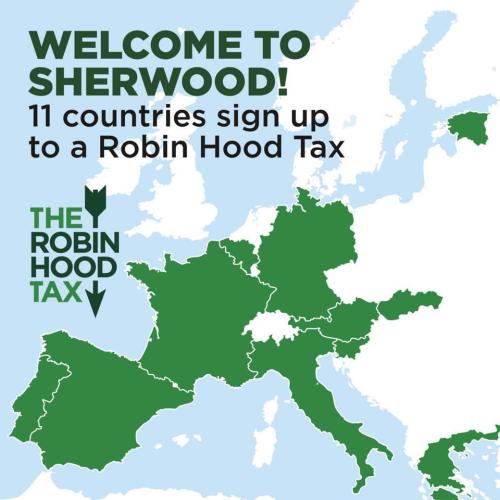I’ve switched to ethical banking! Why?
- By switching to ethical banking you can directly support an ethical and socially useful bank
- The financial crisis and subsequent recession (or depression in Greece’s case) was caused by banks; the taxpayer bailed them out at a huge cost to society. However, little has changed in the banking system, leaving us vulnerable to the next crisis. There are other reasons that such banks are worthy of a boycott – from risky speculation, to avoiding tax, to unethical investments (e.g. in dictatorships, weapon manufacturers and environmental degradation).
- Better interest rates 🙂
The tide may be turning on the big banks however. In October 2012, eleven countries signed up for a Financial Transaction Tax (FTT) aka the Robin Hood Tax, as shown in the diagram below. This tax on banks could ‘generate billions of pounds annually to fight poverty and climate change, at home and abroad‘. It’s brilliant news, and I hope the UK signs up soon!

Here is EthicalConsumer’s free guide to savings account. I used to bank with HSBC (which received 2.5/20 in terms of ethics!) but now I bank with the Co-op (7.5/20) and Triodos Online Bank (15/20).
Triodos Online Banking (for savings accounts only):
- has no bonus culture
- only lends money to ethical organisations who are ‘working to make a positive impact – culturally, socially and environmentally’ e.g. financing wind renewables in the UK
- are transparent i.e. are completely open about how they use their customers money – see who they support here
- is set up online. Setting it up from the comfort of your own home is really quick and easy, saving you the hassle of going into a bank.
If you are interested in moving your money, check out this website for more information.
What score does your bank receive on Ethical Consumer?
Are you tempted to move your money to an ethical bank?
Read Full Post »




